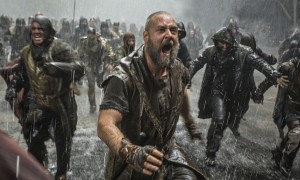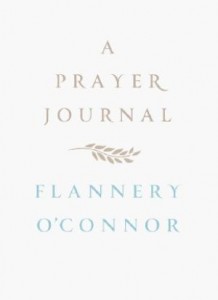KEEP YOUR MOVIE OFF OUR WORLDVIEW!
One of the most galling things about Million Dollar Baby is that the characters are actually pagans dressed in Christian clothing. Why did they have to make them us?
First of all, the career ambitions of the main characters, Frankie Dunn and Maggie Fitzgerald, all have to do with beating the crap out of other human beings for sport. I found this troubling as a human being, not even as a Christian. In the Rocky movies, his need for a blessing before a match seemed to have much more to do with him not getting killed, then with killing the other guy. And I found those scenes to always be played with a touch of irony. There is no irony in the religiosity of Frankie and Maggie.
Further, I find the spectacle of women beating the crap out of each other for sport, to be even more abhorrent, again, as a human, not as a Christian. The ultimate victory of radical feminism seems to be that we women are now free to be worse then the piggiest man. Rah. (A lot of the ambivalence in theatergoers as regards this film can certainly be credited to this. The idea of women fighting each other feels kind of obscene…Somebody help me, did the Roman Empire, even in its most depraved days, ever entertain itself with female gladiators? I’d be interested to know.)
But, whatever… I will grant – although I don’t believe it – that it is possible for Frankie Dunn to be a basically good man who trains people to be more effectively violent in the ring. I will also grant that it is possible for Frankie to have gone to daily Mass for 32 years, and yet never made the connection that pummeling people’s faces to pulp is an un-Christlike thing to do. I’ll grant that.
The galling part has to do with the euthanasia part of the movie. The characters in the film do not handle this tragedy like Christians. They are effectively pagans.
Instead of accepting her disability as the wages of her bad life/career choices – people who box will get hurt more than other people – Maggie rebels. She decides that a) her life has no value because it isn’t the life she wants, and b) she has the authority to end her life. Neither of these are Christian.
Frankie, has nothing to say to Maggie’s suffering. Nevermind as a devout Christian, he doesn’t even have anything to say to her as a coach. Just on the level of good screenwriting, this was absurd. This is a man whose life has been spent in motivating people to push themselves beyond their own limits. His whole life has prepared him for this moment when this young woman would need him to coach her out of her self-pity, and beyond incomparable limits. She will be fighting herself, and not someone else now. But no, Frankie just stands there staring. His mute anguish is absolutely pathetic. It certainly doesn’t rise to the level of even plain old human love — nevermind the love of a devout Christian.
The foul-mouthed priest who makes the assinine statement early in the film that “the only reason someone goes to Mass every day is because he has a guilty conscience” (good grief!!!! No priest on the planet would say this!) also is a pagan disguised in Christian clothing. He has no pastoral counsel to give in this moment of suffering. He morphs from being, Fr. Hip and Cynical into being a stammering parody of Jonathan Edwards, “You’ll be eternally damned if you do this!!” Even a very, very bad priest, half asleep and with a head injury, could do better than this. See, end of life moments are what priests have the most practice for. That’s when people really come to them searching and open.
As Christians, we have TONS to say about the end of life questions. We’ve got pastoral counsel to burn on the value of suffering, the sanctity of even wounded human life, and the power of God even when man’s efforts come up empty. We’ve got articulate positions on pain, dying, suicide, mercy-killing, and euthanasia. (For the record, the Church would have no problem with turning off Maggie’s respirator. No one has to submit themselves to having a machine breathe for them. We do object to the notion of killing people with injections. The first is to let the body die. The second is to kill….just for the record.)
But no, in Million Dollar Baby, the “Christian” characters have nothing to say in the face of tragedy and suffering. It is implied that for Frankie to be a heroic friend (ie. a killer), he will have to be a bad Christian! Being a hero and being a good Christian are incompatible, the film concludes.
The thing is, this film would not be half so offensive if it had the courage to claim its worldview as pagan. If the film played out as the story of how godless people handle devastated dreams, I would have probably given the thing a pass as a dire warning about what humanity without God will come to. (That is, I would have given it a moral pass — the artistic problems in the film are so pervasive that I could never give it a craft pass…)
Why did they have to make these characters Christians? Why did we need to see Maggie’s ever-present golden cross around her neck? Why did it have to be sprawled awkwardly under her chin in the close up in which she asks Frankie to kill her? Why does Frankie need to be defined as a daily Communicant? Why did the film have to manufacture a dilemma where there really was none? (ie. Just turn off the damn respirator! No one has to accept extraordinary life-sustaining means.)
Why couldn’t the filmmakers make the film an occasion to articluate their own worldview and leave us out of it? Why not just embrace the ramifications of paganism instead of trying to dress the characters up as something they are clearly not: lovers of God. The characters could look at one another and shrug their own atheistic ideological platitudes, “This is what it is to be a pagan in an end of life moment. Suffering is the worst thing that can happen, so if you have to kill to stop it, so be it. We are sovereign over our own lives, so we can kill ourselves. We think it is loving to put people down sometimes like thoroughbreads with broken legs.”
Million Dollar Baby, articulates the culture of death worldview that has no part nor parcel in Christendom. John Paul II expresses the culture of death worldview as, (paraphrase) “You know you’ve bought into the culture of death, when you ever think a human problem can be solved by killing someone.”
There’s only one reason the filmmakers would go to so much trouble pushing the characters’ Christianity at us for two hours. This film is really not about boxing, nor is is a love story, nor is it even about euthanasia, as much as it is about the impotence of Christianity in human experience. The film ultimately is making the case that being Christian offers nothing to those who suffer. What Frankie learns is that being Christian is irrelevant when the chips are down. Dogma is silly in the face of real human pain, and the strong man can shake it off to do what he needs to.
It’s nasty because in order to acheive the goal of making Christianity look impotent, the film can’t allow Christianity to really have a voice. It’s what my screenwriting friend Karen Hall calls, “defining Christianity from the outside.” The film is a distortion of Christianity so as to lead the audience to reject it. This is the definition of propaganda.











